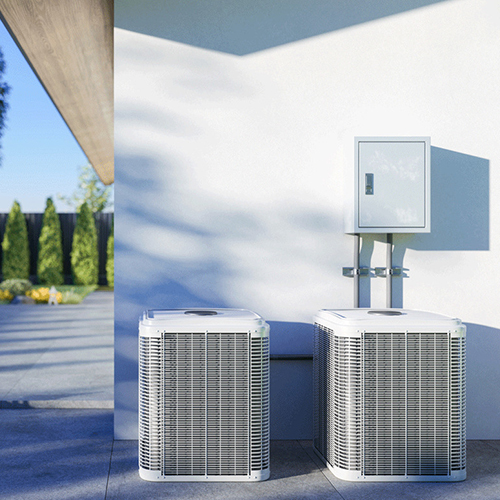 Heating, Ventilation, and Air Conditioning (HVAC) systems are crucial for maintaining comfort in indoor spaces, but their impact extends beyond just temperature control. HVAC systems play a significant role in determining indoor air quality (IAQ), which directly affects the health and well-being of occupants. Understanding how HVAC systems influence air quality and what steps can be taken to improve it can help ensure a healthier living or working environment.
Heating, Ventilation, and Air Conditioning (HVAC) systems are crucial for maintaining comfort in indoor spaces, but their impact extends beyond just temperature control. HVAC systems play a significant role in determining indoor air quality (IAQ), which directly affects the health and well-being of occupants. Understanding how HVAC systems influence air quality and what steps can be taken to improve it can help ensure a healthier living or working environment.
How HVAC Systems Affect Indoor Air Quality
1. Air Filtration
HVAC systems often include air filters that trap dust, allergens, and other particles from the air. The effectiveness of these filters significantly impacts IAQ. High-efficiency filters can capture smaller particles, including pollen, pet dander, and mold spores, improving overall air quality. However, if filters are not regularly maintained or replaced, they can become clogged and less effective, allowing pollutants to circulate through the system.
2. Ventilation
Proper ventilation is essential for maintaining good IAQ. HVAC systems help control ventilation by bringing in fresh outdoor air and expelling stale indoor air. Inadequate ventilation can lead to the buildup of indoor pollutants, such as carbon dioxide (CO2), volatile organic compounds (VOCs), and moisture, which can contribute to poor air quality and discomfort.
3. Humidity Control
Humidity levels have a significant impact on IAQ. HVAC systems with built-in humidifiers or dehumidifiers help regulate indoor humidity levels. High humidity can promote mold growth and dust mites, while low humidity can lead to dry skin and respiratory irritation. Maintaining optimal humidity levels can prevent these issues and improve indoor air quality.
4. Temperature Regulation
Temperature control is another important aspect of IAQ. Extreme temperatures can affect comfort and potentially lead to health issues. HVAC systems ensure that indoor temperatures remain within a comfortable range, which indirectly supports better air quality by preventing conditions that could lead to the proliferation of mold and bacteria.
5. Airflow Distribution
Even distribution of air throughout a building is essential for maintaining consistent IAQ. Poor airflow can create areas of stagnation where pollutants may accumulate. HVAC systems are designed to distribute air evenly, but issues such as blocked vents or imbalanced ductwork can affect this distribution and impact air quality.
Steps to Improve Indoor Air Quality with Your HVAC System
1. Regular Filter Maintenance
To ensure your HVAC system effectively improves IAQ, regularly check and replace air filters. Depending on the type of filter and system usage, filters should be replaced every 1-3 months. Opt for high-efficiency filters that can capture a greater range of airborne particles.
2. Professional Duct Cleaning
Over time, dust, mold, and other contaminants can accumulate in your ductwork. Professional duct cleaning services can remove these pollutants and improve the overall air quality. Regular inspections and cleaning of ducts can help maintain a healthier indoor environment.
3. Ensure Proper Ventilation
Ensure that your HVAC system is set up to provide adequate ventilation. Consider using an energy recovery ventilator (ERV) or heat recovery ventilator (HRV) to enhance ventilation while minimizing energy loss. These systems can improve indoor air quality by bringing in fresh air and expelling stale air more efficiently.
4. Control Humidity Levels
Maintain optimal indoor humidity levels with a humidifier or dehumidifier as needed. Keeping humidity between 30-50% helps prevent mold growth and dust mite proliferation. Regularly check and maintain these devices to ensure they are functioning correctly.
5. Monitor and Address Air Quality Issues
Use air quality monitors to keep track of pollutants, temperature, and humidity levels in your home or office. Address any issues promptly, such as unusual odors, excess moisture, or significant temperature fluctuations, which can indicate underlying problems with the HVAC system.
6. Regular HVAC Maintenance
Schedule regular professional maintenance for your HVAC system. A qualified technician can perform comprehensive inspections, clean system components, and identify potential issues that could affect IAQ. Regular maintenance helps keep the system running efficiently and improves overall air quality.
For expert HVAC services and advice, trust Infiniti HVAC. Our dedicated team is committed to ensuring your indoor air quality meets the highest standards.

